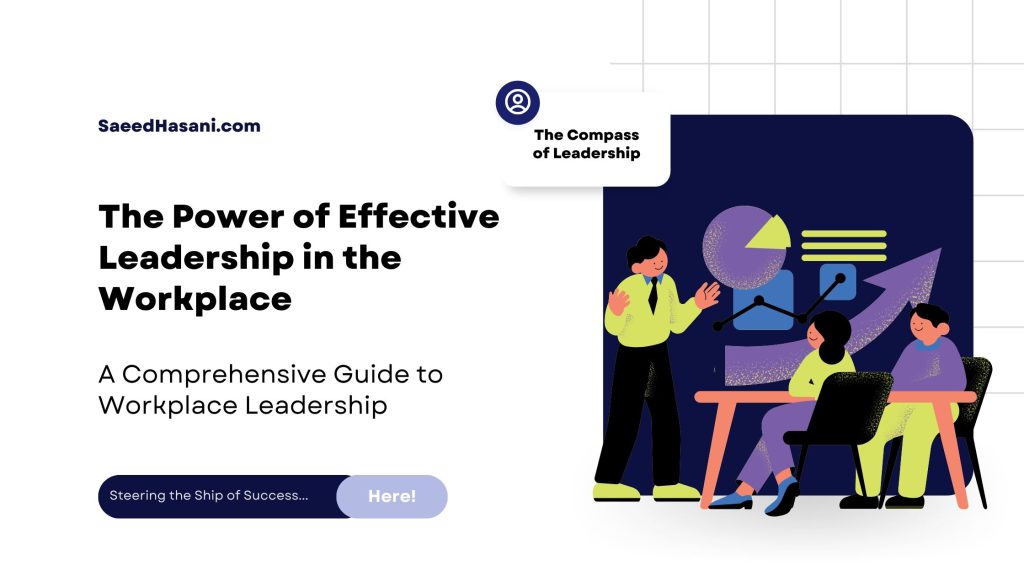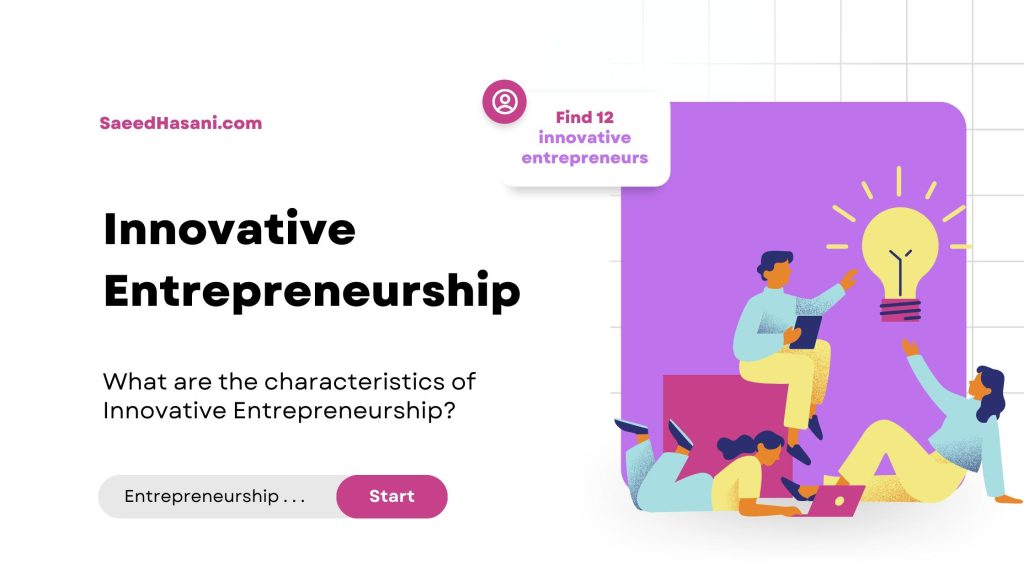The power of effective leadership in the workplace and unlocking success

In the realm of business, whether you hold the position of a manager, CEO, or business proprietor, your proficiency in leading is the driving force propelling your team towards achieving their goals. The greater the range of leadership qualities you exhibit, the more skillfully you can navigate your organization. In this blog post, we delve into the concept of effective leadership within the workplace and outline the fundamental attributes of outstanding leaders. Furthermore, we offer valuable advice on enhancing your leadership abilities.
Leadership in the workplace pertains to an individual’s capacity to oversee and supervise a company and its employees effectively. It also involves the ability to positively influence others to excel in their roles, ultimately contributing to the company’s overall success. Effective leaders significantly impact the decisions, actions, and overall attitudes of their colleagues in a positive manner. When there’s high morale and a positive work environment, the foundation for the company’s success is solid.
The more leadership traits you possess, the more proficient a leader you become.
Why is leadership crucial?
Leaders play a vital role in offering direction, inspiration, and drive in goal attainment. They are instrumental in shaping a shared vision and uniting individuals behind a common purpose. Leaders are equipped with the expertise and abilities to make well-considered choices and tackle challenges adeptly. The absence of Effective leadership would make achieving success, whether at the individual or organizational level, a formidable task. Consequently, robust and effective leadership stands as a critical necessity for any business to unlock its complete potential.
Why does Effective leadership hold significance in the work environment?
In any entity, be it a corporation, an educational institution, or a government body, the presence of leaders is indispensable for steering the course. Leaders offer not only guidance and a sense of purpose but also serve as motivators, inspiring individuals to pursue the organization’s objectives. They foster an atmosphere conducive to triumph by nurturing effective communication and collaboration among team members. In essence, leadership and effective management stand as imperative components for any organization striving to attain its goals.
Essential Qualities for Workplace Effective Leadership
Exhibiting Effective leadership requires a diverse set of skills and traits that facilitate your job performance. These skills include hard skills and soft skills.
Showcasing Your Leadership Competence
Do you possess the leadership abilities that employers are seeking? Whether you hold the position of an office manager or a project leader, Effective leadership requires an array of soft skills to foster positive interactions with employees and team members.
Understanding Effective Leadership
Effective leaders possess the capacity to communicate effectively, motivate their teams, delegate tasks efficiently, actively listen to feedback, and adapt to solve challenges in an ever-evolving work environment. These skills are important for employers, job applicants, and employees, and they are considered valuable whether you’re starting in an entry-level position or looking to move up the career ladder.
Top Effective Leadership Skills
Here are fundamental leadership skills that distinguish successful leaders in the workplace:
Effective Communication:
Leaders should excel at articulating organizational goals and specific tasks through various forms of communication, including one-on-one conversations, departmental meetings, and digital channels.
Like most roles, leaders must be adept communicators, serving as the voice of the company. Effective communication with your team and employees is crucial.
Empathy:
Empathy exhibits a strong connection with job performance, constituting a pivotal component of emotional intelligence and leadership prowess. Our research underscores that displaying inclusive leadership and empathetic conduct toward your direct reports enhances your standing as a high-performing individual in the eyes of your superiors. Moreover, embracing empathy and fostering inclusivity stands as an imperative for enhancing the overall workplace environment and the well-being of your colleagues.
Leaders need to demonstrate empathy by understanding the wants, needs, and concerns of others. That fosters a harmonious working relationship, earns trust, and garners respect from colleagues and employees.
Motivation:
Effective leaders inspire their teams to go the extra mile by recognizing achievements and providing opportunities for personal growth and responsibility. Leaders not only guide their teams but also empower them to perform at their best.
Delegating:
Delegation stands as a fundamental duty of a leader, yet mastering effective delegation can pose challenges. The objective extends beyond personal relief; it aims to foster the growth of your direct reports, promote teamwork, grant autonomy, and enhance decision-making. Skillful leaders excel in cultivating workplace trust and team cohesion through adept delegation practices.
In this way, a sense of trust and competence is cultivated in the team. Effective delegation and team management are critical for leaders to achieve their goals.
Humility:
Effective leadership should display modesty about their motivations and actions, showing employees that even superiors can make mistakes.
Positivity:
A positive attitude can significantly boost morale and cultivate a healthy work environment. Leaders should maintain a positive outlook to inspire others.
When you have a positive attitude, even in challenging situations, you can create a healthy work environment, improve your morale and that of your employees, and encourage productivity.
Confidence:
Effective leaders must believe in their abilities, motivate others, and instill hope in the company’s future.
Vision:
Effective leadership possesses the motivation and strategic thinking required to envision the company’s future success.
Trustworthiness:
Building trust through honesty and integrity enables employees to feel comfortable approaching their leaders with questions and concerns.
Creativity:
Leaders must think creatively to solve complex problems and embrace unconventional solutions when necessary.
Feedback:
Collect feedback from your employees to gain insights into how you’re perceived and identify areas for improvement.
Providing constructive feedback while allowing employees to make their own decisions fosters a culture of growth and autonomy.
Responsibility:
Leaders should prioritize their tasks and stay focused on fulfilling their duties for the company.
Taking ownership of both successes and failures and working on solutions shows leadership’s commitment and reliability.
Transparency:
Being open, honest, and effectively communicating about the company’s state and goals is essential for building trust with employees.
Commitment:
Effective leadership and effective communication share a strong connection. Exceptional leaders are adept communicators, capable of conveying information, inspiring others, and providing guidance to their teams. It’s worth noting that the caliber and efficacy of communication among leaders throughout your organization have a direct impact on the success of your business strategy.
Leaders lead by example, demonstrating dedication to their work, their teams, and their promises.
Flexibility:
Adapting to changes and being open to feedback demonstrates a leader’s ability to navigate shifting circumstances and foster collaboration.
Additional Vital Leadership Traits
In addition to these core skills, leaders should also possess qualities such as empathy, conflict resolution abilities, and ethical decision-making to excel in their roles.
Developing Leadership Skills
To become a more proficient leader, continuous skill refinement is crucial. That not only benefits your personal growth but can also advance your career. Here are some ways to improve your leadership skills in the workplace:
Take the initiative:
Look beyond your job description and seek opportunities to benefit your department and company in the long term. You don’t need to hold a management position to cultivate leadership skills.
Request More Responsibility:
Express your eagerness to grow your leadership abilities and inquire about projects or tasks where you can take the lead.
Practice Active Listening:
Enhance your active listening skills by attentively considering the input of colleagues and employees, demonstrating engagement and care.
Identify Your Strengths:
Differentiating between strengths and weaknesses allows you to leverage your strong points to your advantage.
Target Specific Skills:
Identify specific skills you want to develop and create a plan for improvement through learning opportunities, mentorship, or setting achievable goals.
Stay focused:
Effective leadership effectively prioritizes tasks to increase efficiency and contribute to the overall success of the company.
Support Others:
Assisting colleagues and building relationships through empathy and collaboration can improve your communication and leadership skills.
Showcasing Your Leadership Skills:
Highlighting these skills in your job search and career development can make you a standout candidate. Incorporate relevant skill words in your resume and cover letter.
During interviews, provide examples of how you’ve demonstrated leadership in your past roles.
Conclusion
By focusing on these effective leadership skills and constantly refining them, you can not only improve your career prospects, but you can also help your workplace. Incorporating these traits and strategies into your leadership approach can further develop your leadership skills and create a more successful work environment.







Responses